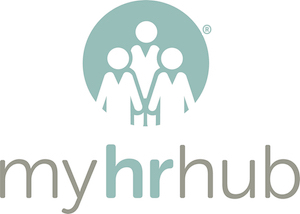Based on my experience having worked in many organisations across a wide range of sectors, I simply cannot provide a counter argument on this one; I am and always have been against attendance bonuses.
Businesses are getting better at monitoring and improving absence rates. In 2016 the average days off per employee per year was 6.3 days compared with 7.7 in 2011, according to the CIPD.
I would say that an increase in employee engagement has shone a spotlight on employee absences and these have been better managed as a result.
However, statistics tell us that there is a rise in some illnesses, specifically mental health.
The Office for National Statistics’ Wellbeing Report says: “Indicators reporting satisfaction with overall health have deteriorated, while those reporting evidence of depression or anxiety have risen – these figures are disappointing, yet not a surprise. Work and education pressures, isolation as a result of the rise of ‘always on’ social networking, and financial pressures as a consequence of growing financial inequality and rising tuition fees, are all likely to have contributed to these rising figures.”
Understanding the source of the absence firstly, then trying to support where this is relevant is key to absence management. Offering financial incentives for employees to be at work when they genuinely need to be at home is indirectly creating a culture where they will be penalised for being off sick. This can create a series of problems for those among those who feel like they need earn this bonus, though presenteeism, disengagement, resentment, unmanaged ill health and poor performance etc. Is it not easier to trust, deal and support the absence (providing it is genuine) and build a culture of health and wellbeing?
I have worked at a company that offered an ‘attendance bonus’ – this was 15 years ago! 15 years ago, when we all knew no better; when it was a trial and error scenario. There is no reason why we should still be doing this in 2017. My view is that if employees are genuinely sick, then they need to be at home and not enticed into work by financial gains. I have read many stories about the impact of being sick at work (either with colds, coughs etc) where there has been a non-supportive, trust-less and less ‘grown-up’ culture which does not encourage the employee to stay at home. The result has been ripple effect illnesses by the spreading of germs. I have experienced this and the negative effect that it has on wellbeing of the individual and the team, and in the long run the company performance will suffer.
Attendance bonuses also need to be treated with caution. The Land Registry v Houghton (2015) case involved the non-payment of a bonus to disabled employees because they had received warnings for disability-related absences. The Employment Appeal Tribunal had to decide whether this amounted to discrimination arising from disability and whether this could be justified. Both the employment tribunal and the Employment Appeal Tribunal held that the claimants had been treated unfavourably.
The most recent French employment law ruling shows that other countries are managing work differently and are encouraging French employees to switch off after work. In the UK, we work the most hours out of any of the EU country and we combat this antidote by offering Employee Assistance Programmes, access to counselling, healthy eating programmes, etc. We have an increasing long-hours culture. 60% of organisations report that long working hours are the norm. This is a worrying trend given that workload is the most common cause of stress-related absence and that a long hours culture is also associated with increases in reported mental health problem.
My opinion is that organisations attempt to manage absence and promote wellbeing through a range of practices and initiatives, but fewer take a more strategic or holistic approach. The initiatives are sticking plasters when a company is not encouraging regular breaks, lunchtimes away from desks, taking all of the entitled annual leave and managing the hours, to ensure that employees are not working to excess.
Organisations need to train managers in absence handling as this is lacking, given the wide research evidence base about the importance of the line manager role in creating a great place to work; this misalignment needs to be addressed.
For me professionally, attendance bonuses are the equivalent of someone’s salary. They are paid to be at work full stop. A robust framework would see a company handling sickness absence through a clear company policy that supports genuine illness but also has clear absence rules and triggers for discussions of a formal nature. Line managers should also be trained well to spot potential absence issues, to hold productive return to work interviews and to work with HR to create practical and effective recommendations.
Understanding the costs and causes of absence and presenteeism will not only improve productivity through a reduction in days of sick, but it will also create a healthy place to work that attracts and retains talent.


Recent Comments